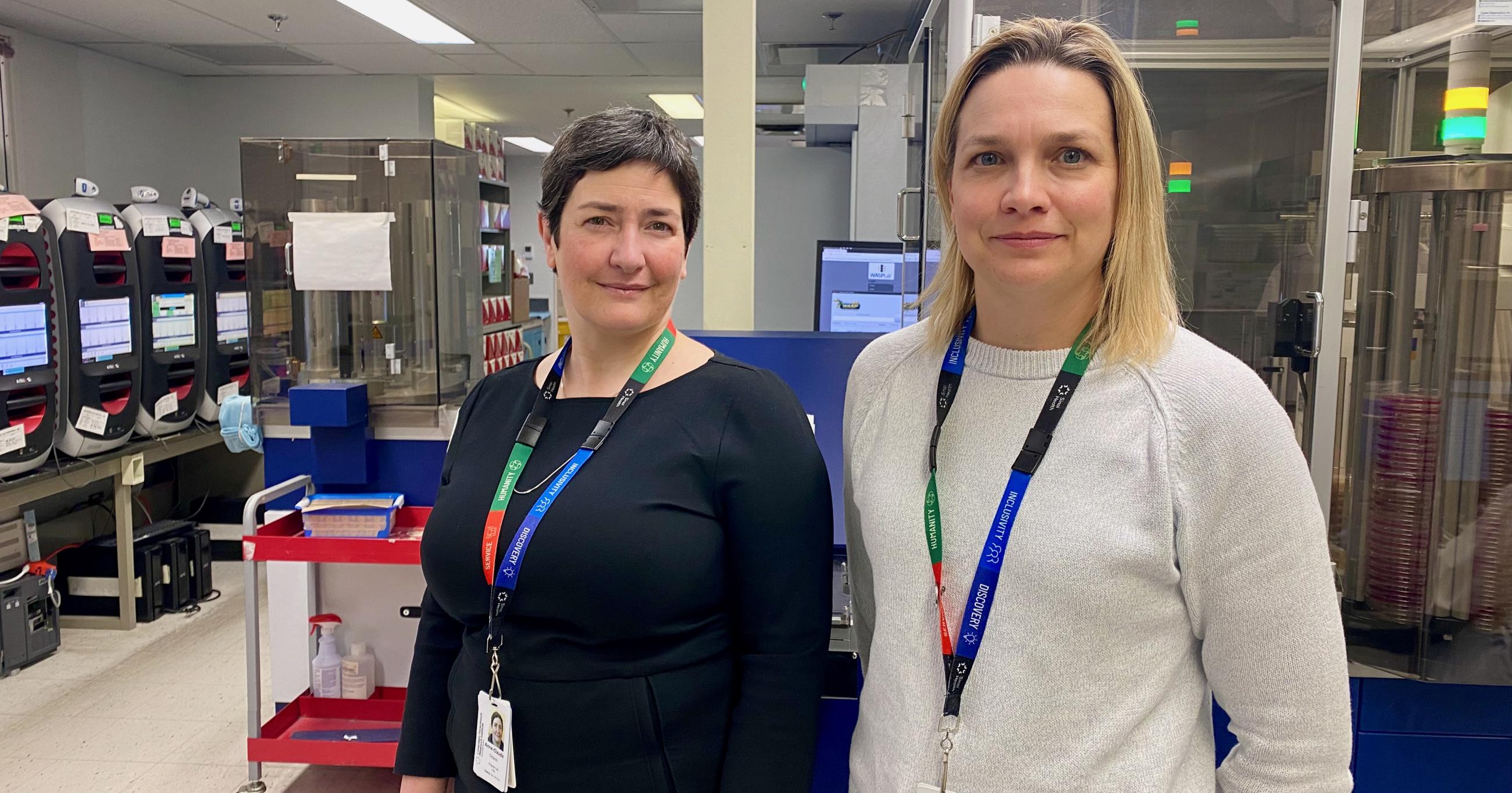Collaborative $19 Million initiative aims to strengthen Canada's pandemic response

As we navigate the aftermath of COVID-19, the inevitability of another pandemic looms over us — it’s a matter of when, not if.
Recognising this urgency, the federal government is investing in several programs to bolster the country’s readiness to respond to emerging health threats.
Among them is a $19 million comprehensive initiative to enhance Canada’s ability to innovate and scale diagnostics during pandemics.
Led by Sinai Health’s Drs. Anne-Claude Gingras and Jennie Johnstone, the PRECISE initiative is a multi-institution, multi-disciplinary partnership that will establish a robust diagnostic pipeline that can be rapidly deployed in the event of another pandemic.
PRECISE stands for Prepare, REact, Collect, Innovate, Share, and Engage, and it is rooted within the Canadian Hub for Health Intelligence & Innovation in Infectious Diseases at the University of Toronto (U of T), one of five national hubs established through the Canada Biomedical Research Fund with a mandate to bolster Canada’s biomanufacturing capacity and readiness to respond to emerging health threats.
Read the University of Toronto story here.
“The PRECISE team will work together to build a partnership network with hospitals, research laboratories, public health authorities at local, provincial and national level, government and industry partners,” said co-lead Dr. Johnstone, Medical Director of Infection Prevention and Control at Sinai Health.
“Through PRECISE, we will enable the sharing of data and resources that will help us mobilize quickly and efficiently when another pandemic strikes,” added Dr. Johnstone, who is also Division Director for Infectious Diseases in the Department of Medicine at U of T, the largest Infectious Diseases Division in Canada.
She also said, “Foundational to PRECISE is the need to engage community partners from the beginning, as it is too late to form effective or trusted partnerships during a health emergency.” The PRECISE Team will work with Health Commons Solutions Lab, a non-profit based at the Hennick Bridgepoint Hospital, part of Sinai Health, with expertise in co-designing solutions together with communities.
The initiative brings together almost 50 leaders from across health sciences, including infectious diseases, immunology, microbiology, molecular diagnostics, social sciences and public health, and from across public, private and non-profit spheres. (see side bar for participating institutions). Their collaboration builds upon relationships forged during recent health emergencies and was critical to the grant’s success, Dr. Johnstone said.
Partnerships with the National Microbiology Laboratory (NML), the Public Health Agency of Canada, Public Health Ontario and local public health will enable a rapid, coordinated response to prevent the testing delays seen in early COVID-19 waves.
Concurrently, collaborations with the National Research Council (NRC) and industry partners will advance domestic diagnostic tools, reducing dependence on international supply chains. This includes validating point-of-care diagnostic devices, that can be used in remote communities, which were disproportionately impacted by testing delays.
During COVID-19, individual efforts helped establish vital partnerships. For instance, one of the current partners, Microbix Biosystems from Mississauga, supplied media for nasal swab transport and storage when traditional sources couldn’t meet demand, said Dr. Gingras, co-lead of the initiative, Director of the Lunenfeld-Tanenbaum Research Institute and Vice President of Research at Sinai Health. This support enabled Sinai Health/UHN to accelerate testing and increase capacity more than any other centre in the province.
Learning from past pandemics
Dr. Johnstone witnessed first-hand how the lack of planning and diagnostic resources led to unnecessary deaths in the early waves of the pandemic.
“The first COVID-19 pandemic wave was catastrophic. We were not ready from a testing perspective,” she said, pointing to limited testing capacity and outdated testing protocols, especially in long-term care homes, as contributing factors.
During the pandemic, Dr. Johnstone helped to develop national and provincial COVID-19 prevention guidelines for hospitals and chaired Ontario’s SARS-CoV-2 Testing Strategy Expert Panel.
Lack of preparedness also stymied critical research for developing vital tests, vaccines and treatments. Supported by the Sinai Health Foundation Dr. Gingras’ team established an in-house SARS-CoV-2 immunity testing platform within two months of the pandemic’s start. In collaboration with partners like the NML, the NRC and Canadian Blood Services, this platform, later backed by the COVID-19 Immunity Task Force, delivered crucial data on immunity and vaccine efficacy, informing public health strategies across Canada.
Dr. Gingras stressed the value of strategic partnerships formed before a pandemic, using South Korea as an example.
“After experiencing MERS in 2015, South Korea established partnerships across various sectors that enabled them to quickly scale up testing and effectively control the COVID-19 outbreak,” said Dr. Gingras, who is also a Professor in the Department of Molecular Genetics at U of T.
The PRECISE initiative will first create a research and clinical network across 17 academic and community hospitals in Southern Ontario, a key area for pathogen entry into Canada. It will develop joint protocols for specimen collection, patient care, and crucially, for sharing clinical data between hospitals and research labs to accelerate diagnostics and treatment research.
Teams will continue researching SARS-CoV-2 and other pathogens like bird flu. Last week, the media widely reported the spread of the highly pathogenic H5N1 avian influenza in U.S. cattle, sparking global headlines and concerns about a potential new pandemic.
“Avian influenza is probably the virus with the most pandemic potential at this moment in time,” said Dr. Johnstone.
“But what I learned during COVID-19 is to avoid making predictions and expect the unexpected. Whatever comes our way, we need to be ready.”












